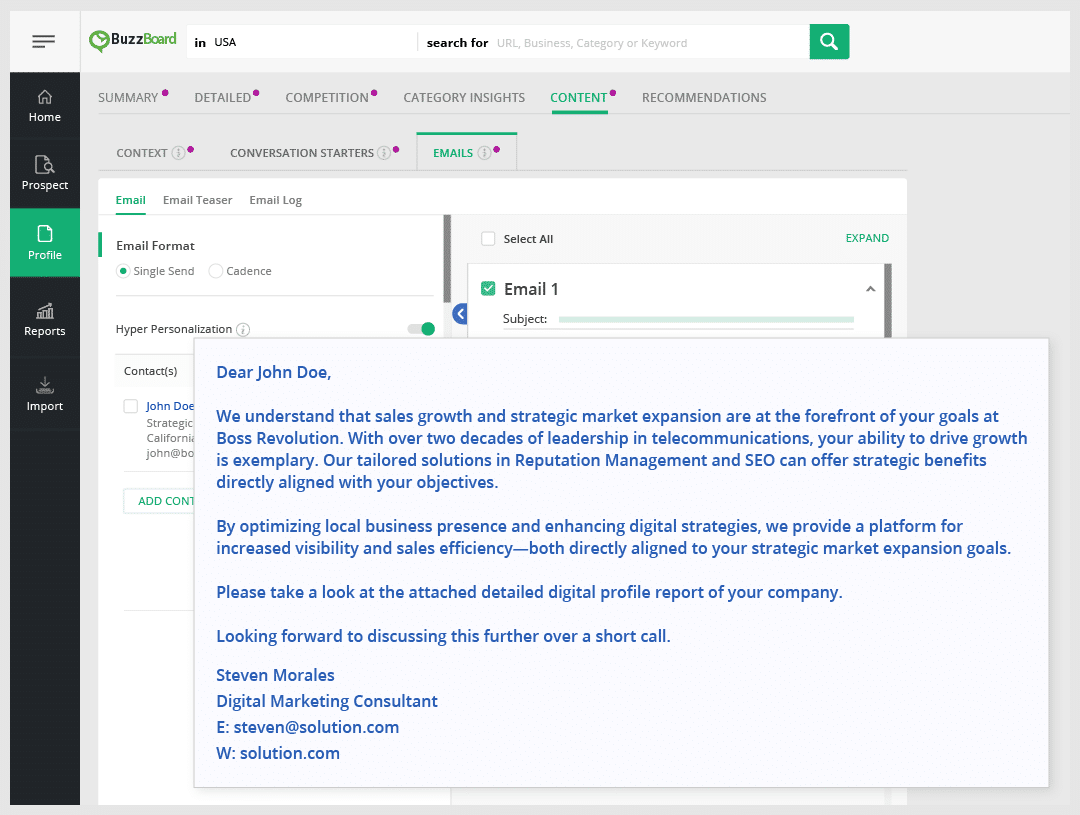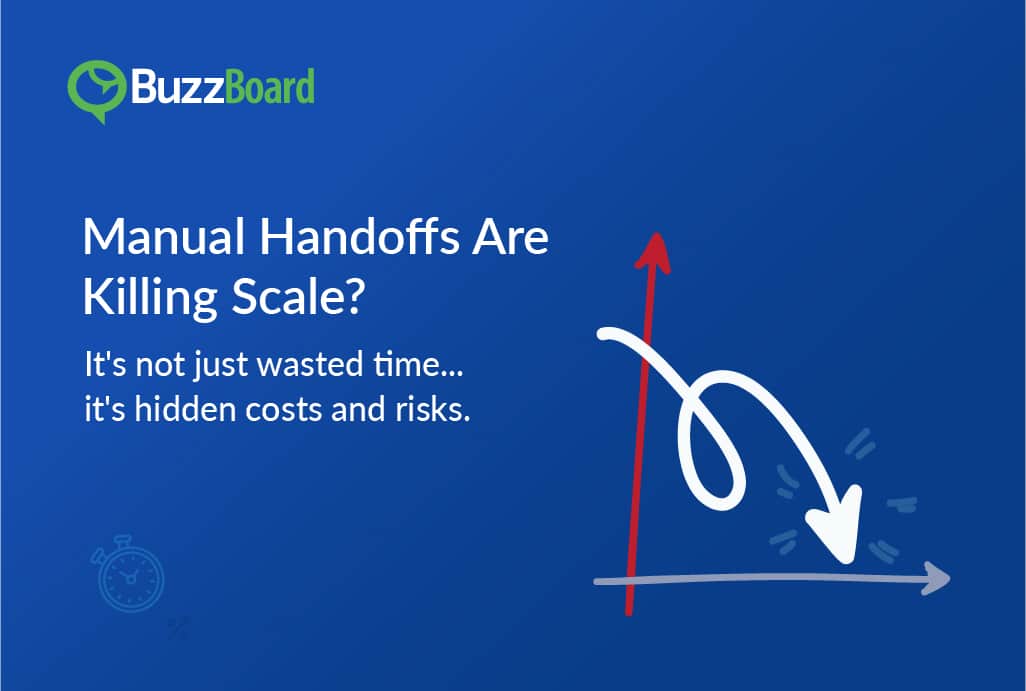Merging buyer insights with business need for personalized sales conversations
What if you could know not just who your prospects are, but how they think, communicate, and make decisions?
BuzzBoard has always stood for empowering sales teams with deep company insights to fuel meaningful sales conversations. Our data-driven approach to developing Ideal Customer Profiles (ICPs) and finding the best-fit prospects has helped thousands of sales teams tailor their outreach to address specific business pain points and close deals faster.
But now, we’re taking prospecting a step further. With BuzzBoard’s new Contact Personality Analysis, we’re adding buyer psychographic or behavioral insights into your personalization strategy, giving your sales team an unparalleled advantage in crafting both the message and the approach.
Buyer insights is the hidden intelligence for unstoppable sales
Sales teams across organizations know this challenge well: You’ve identified the right businesses to prospect—your ICP is dialed in perfectly. You’ve done your homework on the company’s industry, size, digital maturity, and growth potential. But even after nailing down the business’s needs in your outreach, the prospect still doesn’t bite. Why?
Because knowing the company’s profile is just half the battle. The other half? Knowing how the individual decision-maker prefers to be engaged. That’s where buyer insights come in.
Unfortunately, sellers often lean on buyer personas as if they’re the full picture because personas offer a convenient, easy-to-digest profile of “typical” customers. But here’s the catch: buyer personas are static snapshots. They’re like studying a roadmap without real-time traffic data. Buyer or prospect behavioral insights, on the other hand, are dynamic, individualized, and detailed. They reveal how, when, and why a particular buyer makes decisions right now, not based on an average or a guess. In contrast to personas, insights allow sales reps to respond in the moment, adjusting tone, timing, and focus to fit exactly where the individual is on their journey.
By layering buyer insights on top of your personalization strategy, you can approach each lead not just with the right message but with the right tone, style, and emotional triggers.
Introducing BuzzBoard’s contact personality analysis: Marrying business needs with emotional drivers
Powered by AI, BuzzBoard’s Contact Personality Analysis feature gives your sales team a career and psychological profile of the decision-makers within your prospect organization
BuzzBoard Ignite provides this personalized analysis of decision-makers, offering sales reps valuable pre-sales insights, ready-to-use hyper-personalized emails, and a strategic advantage in pre-sales activities.
Through AI-driven Personality Analysis, sales representatives gain detailed insights into a person’s background, interests, and professional history, enabling more tailored and effective communication and personalized sales strategies.

Imagine knowing whether your contact prefers a short and punchy email or a detailed proposal with facts and figures, or whether they’re more likely to respond to data-driven insights or emotional appeals. Or if they are even the right contact for what you are selling. This is the key to more personalized, efficient, and successful prospecting.
A game-changer for sales teams: Personalized outreach at scale
Sales managers within digital marketing, media, and website hosting industries face the constant pressure of generating leads and closing deals faster. Your team needs to maximize every interaction, especially when targeting small and local businesses, where decision-makers are often overwhelmed with offers.

By adding buyer psychographic insights to your prospecting strategy, BuzzBoard’s Contact Personality Analysis helps your team cut through the noise. Now, they’re not just reaching out to a business—they’re connecting with individuals in a way that feels personal, relevant, and intuitive.
Here’s how this feature can enhance your sales team’s performance:
- Enhanced Targeting: Combine ICP precision and business needs with decision-maker insights to craft the perfect pitch.
- Faster Deal Cycles: Reduce back-and-forth by approaching prospects in a way that aligns with their decision-making style from the start.
- Higher Engagement Rates: Personalize outreach that speaks to both the needs of the business and the personality of the decision-maker, resulting in more productive conversations.
From data-driven to deeply personal
BuzzBoard has always been about providing the deepest company data to enable smarter, more strategic prospecting. Our customers rely on us to help identify and qualify their best-fit accounts. But businesses don’t make decisions—people do. Once you have the businesses worth pursuing, Contact Personality Analysis tells you how to build a real, human connection with the individuals who drive those decisions.
By combining buyer insights with a detailed company profile, you’re giving your sales team the ability to tailor their messaging and approach at a level most competitors simply can’t match. It’s the next evolution in effective prospecting—moving from data-driven to deeply personal.
Equip your team with the power of business insights plus decision-maker analysis, so they can engage and respond to both data and emotions. Let every pitch become irresistible and every interaction a step closer to sealing the deal!

